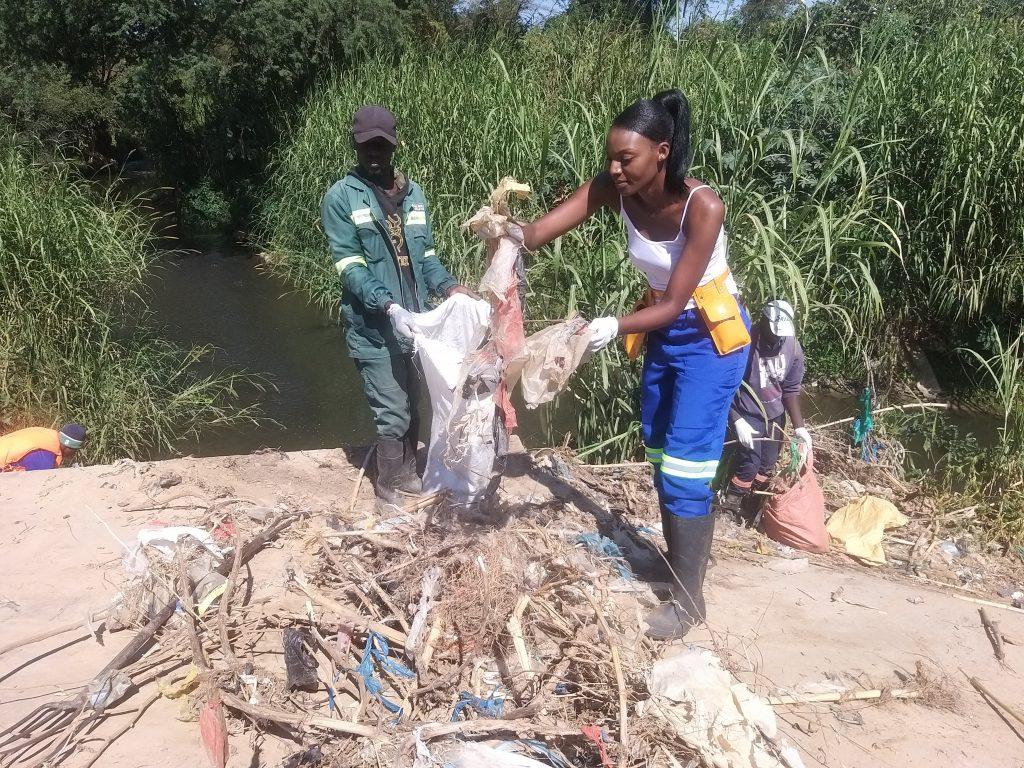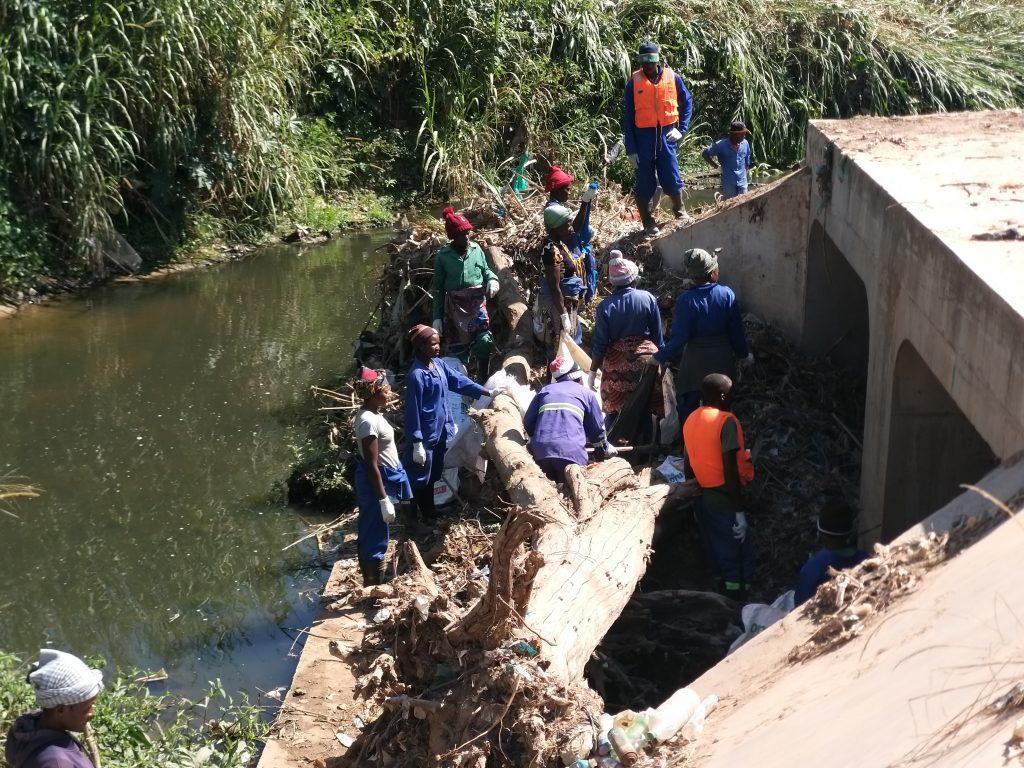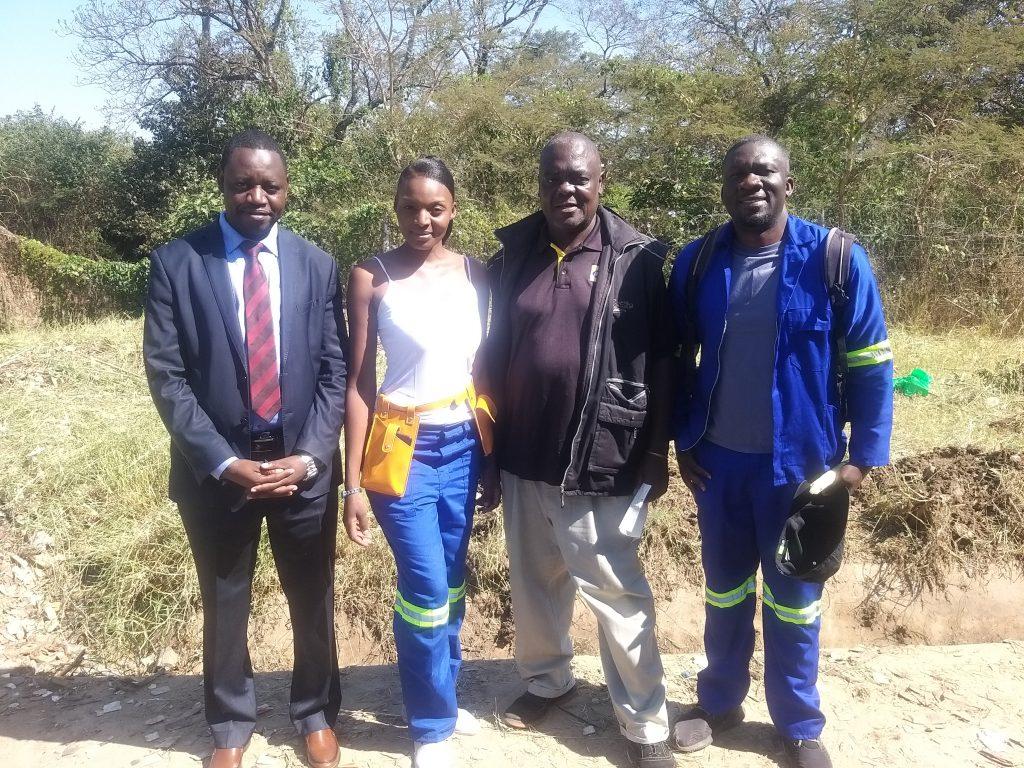Operation Save Ngwerere River commissioned
… As Ms Earth urges cooperate world to consider not only establishing recycling factories as a means to combat climate change resulting from non-biodegradable material but also call for an urgent CSR to save environment and protect food security.

By Francis Maingaila
Choongwe, Zambia24 (05-06-2023) – Operation Clean Ngwerere River, which provides clean water to the city of Lusaka and Chongwe, has commenced with a challenge to the Corporate world to provide corporate social responsibility (CSR) to save the Ngwerere River.

Ms. Earth Zambia Kena Chibuye spoke to Zambia24 in an exclusive interview about the cleaning exercise of Ngwerere river ahead of the World Environment Day.
She emphasized the need for corporate social responsibility (CSR) to save the Ngwerere River and called on companies operating in the area to take responsibility for the environmental impact of their operations.
Chibuye urged the corporate world to be more environmentally conscious and take measures to reduce pollution and promote sustainable practices.
She called for collaboration between the government, the private sector, and the community in protecting the environment.
She also emphasized the need for companies to comply with environmental laws and regulations and invest in environmental conservation programs.
She highlighted the importance of reducing waste and promoting the manufacturing of recycled materials.
She said that there was a growing demand for CSR and environmental responsibility from stakeholders, emphasizing the need for an integrated approach to environmental conservation and sustainable development.
Chibuye also urged the community to focus on long-term solutions such as natural regeneration and management of woodlands and agroforestry.
Several community members shared their concerns about the blocked Ngwerere River and how it has negatively affected them.
One resident, Mrs. Mwila, who lives near the river, shared about how she has experienced severe flooding during the rainy season and has lost crops, property, and had to relocate temporarily due to the flooding.
Another resident, Mr. Banda, who used to fish in the Ngwerere River, said that since the blockage, there has been a decline in fish populations.
Ngwerere ward councilor Newton Chipili suspects that the blockage was caused by the dumping of waste and sedimentation in the river.

Newton Chipili. Speaking about the Ngwerere stream, Chipili explained that the area is prone to flooding due to the city’s drainage system, which leads to rubbish being deposited in the stream.
He highlighted that during the rainy season, all the water that connects to the city of Lusaka ends up in Ngwerere.
Chipili appealed to the city council to ensure proper management of waste and called on companies to take up their corporate social responsibility to reduce pollution.
The councilor also advised companies in the chemical industry to manage their waste properly to avoid the contamination of water.
Vegetable gardens in the area, which rely on water from the river, could pose a health risk if the water becomes contaminated.
Chipili appealed to stakeholders to come together and find a lasting solution to mitigate the environmental challenges facing Ngwerere.
Ans the town clerk, Damson Mukwato, also shared his concerns about the blockage and its impact on the community.
He stressed that the river is crucial for vegetable growing and fish ponds, and therefore it is essential to preserve it.
The District Town Clerk is working, alongside other stakeholders, with the Minister of Green Economy and Development to restore and protect the river.

Mukwato also urged the public to be more responsible in disposing of waste and decried the culture of routine littering.
He further explained that waste can be turned into a resource if people start recycling it.
Mukwato called upon the local authorities and the central government to work together to ensure that there is greater enforcement of environmental laws to reduce pollution in the river.
If the river is not preserved, the livelihood of millions of people will be affected.
He mentioned that the government is working with the local authorities and other stakeholders to desilt the river and remove the debris that is causing the blockage.
The government has set up a task force comprising of environmental experts, community leaders, and government officials to study the issue and recommend possible solutions.
They are exploring various options, including dredging, to restore the river’s natural flow.
The local authorities are also partnering with the community to raise awareness about the importance of protecting the environment and avoiding activities that could lead to the blockage of rivers and other waterways.
The local authorities are committed to resolving this issue and restoring the Ngwerere River to its former state so that the community can benefit from it for years to come.
Meanwhile Ms. Chibuye urged the manufacturer to consider establishing recycling factories as a means of combating climate change resulting from non-biodegradable materials.

She noted that these factories could play a significant role in reducing greenhouse gas emissions that result from the production and transportation of new materials, thus slowing the pace of climate change.
Additionally, recycling factories have the potential to conserve natural resources by reusing existing ones, reducing the need to extract raw materials that could be a significant source of carbon emissions.
Moreover, Ms Chibuye said recycling factories can divert waste from landfills, where non-biodegradable materials take years or even centuries to break down, releasing harmful gases into the environment.
Repurposing these materials through recycling factories can keep them out of landfills, thus reducing the amount of methane released into the atmosphere.
Ultimately, recycling factories can promote the circular economy by creating closed-loop systems that continuously reuse and repurpose materials, reducing waste and conserving energy.
The establishment of recycling factories could combat climate change by reducing greenhouse gas emissions, conserving natural resources, diverting waste from landfills, and promoting the circular economy.
Ms. Chibuye’s advocacy for recycling factories highlights their potential in mitigating climate change effects.

